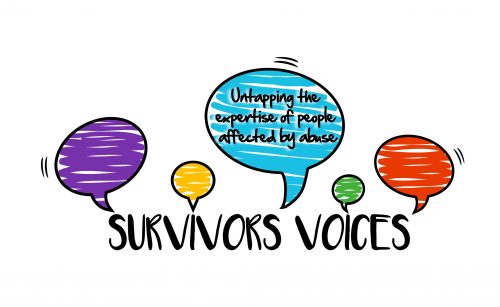We discussed where we were with difficult edges in our research process, noting that these can arise from the research journey and/or from our personal and/or trauma influenced responses to difficulty.
They included:
- When the ‘people pleaser’ aspect of being a survivor comes into contact with demands from supervisors and other stakeholders in our research. We discussed boundaries, finding a voice via therapy and 12 step groups, and using anger as a powerful agent in pushing back against demands. Anger needs to be harnessed and channelled appropriately of course, but it can help in spaces when ‘flight’ or ‘collapse’ is a more common effect of a trauma triggering.
- Becoming visible as a survivor by attending conferences, publishing papers etc. This is problematic when members of our family etc don’t know our CSA history.
- We discussed how becoming vocal and disclosing our history is a process and that if part of us had started to emerge maybe we could recognise this and ‘trust the process’…over time, and gently!
- It can be helpful to have a pre-prepared ‘script’ ready if a member of the family has discovered something that has been published which reveals something to them that they were unaware of. This script could be a partial disclosure and that the process of full disclosure can take a long time. As survivors we have control over the pace at which we reveal aspects of what has happened to us.
- The impact on us of ‘standing out, or up’ as a survivor: particularly physiologically and the need to take good care of ourselves in the process of disclosure, was discussed. The benefits of using an Internal Family Systems (Richard Schwartz) approach to different ‘parts’ of us as a traumatised person. Taking time to find integration of aspects of self which sometimes don’t feel the same way about ‘our’ actions. Youtube link for further information:
What is Internal Family Systems? (17 Mins) – YouTube
https://www.youtube.com › watch

